The Big Read in short: The upside of living with parents
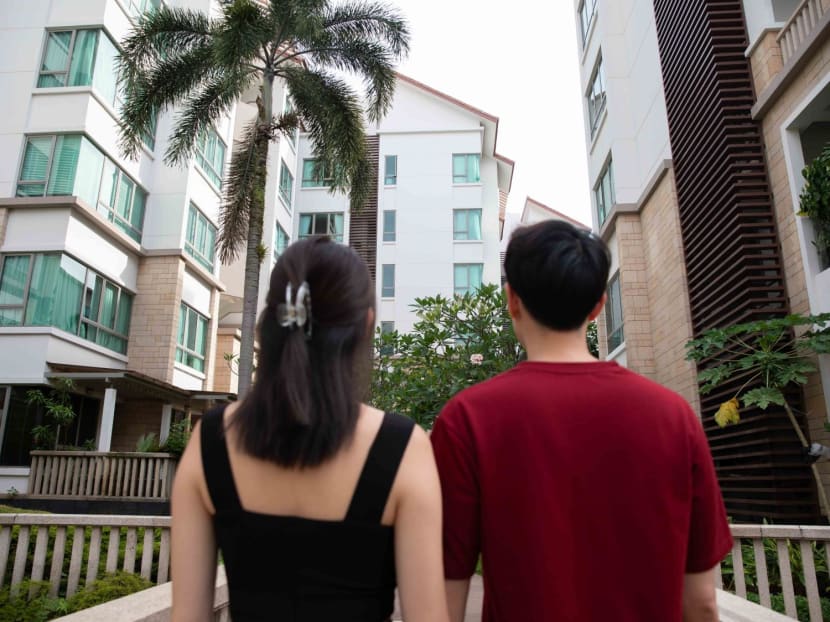
Some married couples are opting to stay with parents due to caregiving responsibilities or to save money for future needs.

This audio is AI-generated.
- Rising rents and economic uncertainty have pushed some single Singaporeans to move back in with their parents after a period of renting during the pandemic
- Separately, some married couples are opting to stay with parents due to caregiving responsibilities or to save money for future needs
- Experts noted that some young adults may seek independence again as rents stabilise
- As multigenerational living is becoming less common in Singapore, experts say it is important to incentivise families to live close to each other
- Sociologists added it is important to offer different housing options to meet families' contradictory needs for privacy and closeness
SINGAPORE — Software engineer Jeffrey, 26, thought he had adulthood all figured out when he moved into a sleek one-bedroom condominium unit near Somerset in July last year.
He had the freedom to cook for himself and host friends, and he no longer had to commute to Orchard for work from Simei, where he had been living with his parents.
He was paying S$3,200 in monthly rent, but that was within his budget.
But when he was laid off in May this year, Mr Jeffrey, who declined to give his full name, had to return to the family nest.
“In the end, I thought it would be better to save more money for my future house by moving back,” he said.
Mr Jeffrey is part of a growing number of young Singaporeans who have returned to live with their parents in the past couple of years, as soaring rents and economic uncertainty force them to rethink the cost of independence.
The trend of singles moving out to rent — which goes against the conventional Singaporean path of graduating from university, getting a job, tying the knot and buying a Build-to-Order (BTO) flat — picked up during the pandemic four years ago.
That was when many single adults, who suddenly had to work from home, found themselves craving more privacy and space.
TODAY takes a closer look at the reasons behind young adults' strong desire to have their own space in land-scarce Singapore, and how this trend may pan out in the year ahead.
WHY IT MATTERS
The increased demand for rentals during the pandemic period, coupled with a tight supply of condo units, drove rental prices to record highs.
Overall, data from the Urban Redevelopment Authority showed that Singapore’s rental price index had jumped by 55 per cent from end-2020 to end-2023.
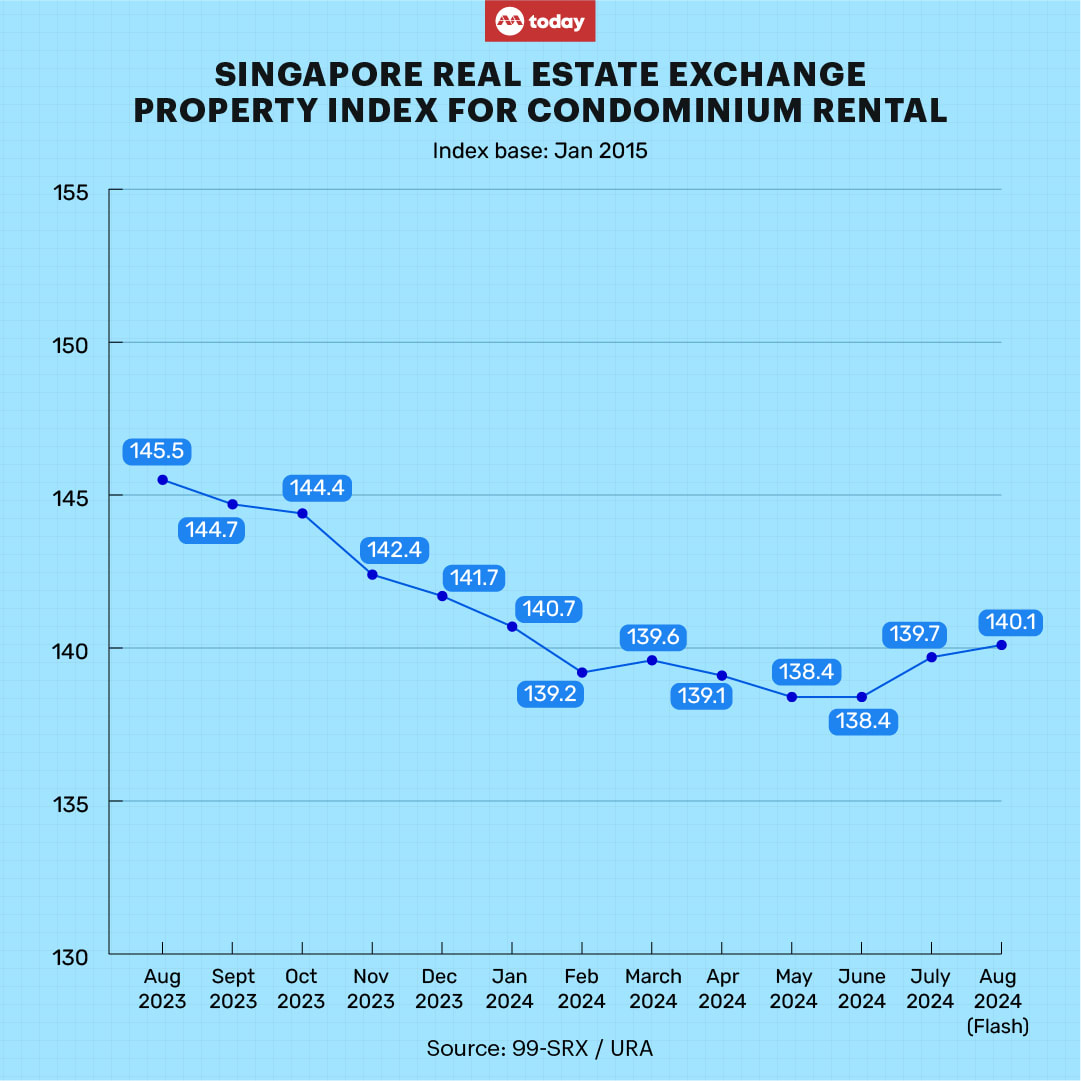
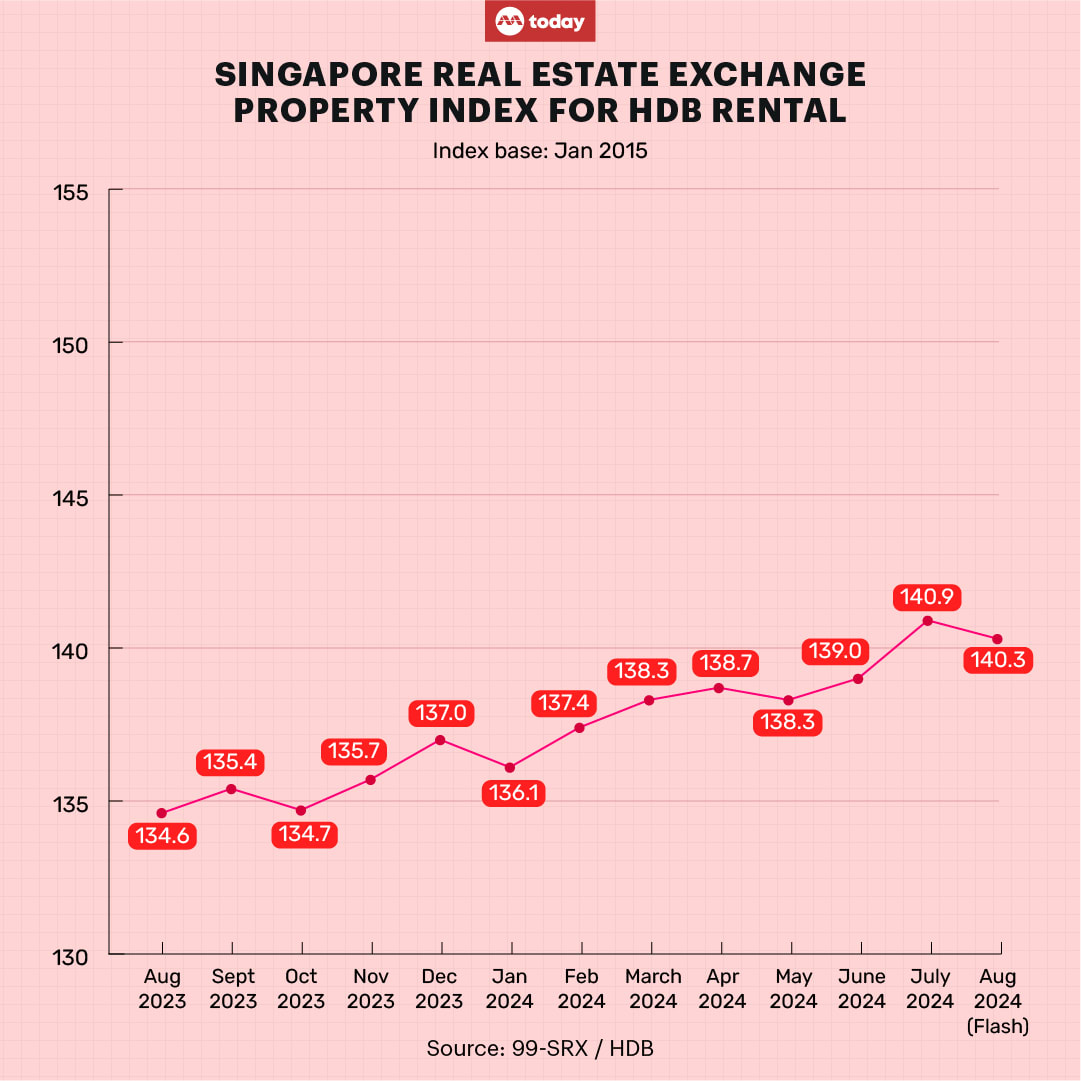
While data is unavailable, several property analysts told TODAY that they have observed a rise in single renters returning to live with their parents in the past year.
Ms Christine Sun, chief researcher and strategist at OrangeTee Group, said the company’s agents have observed an estimated 15 to 20 per cent increase last year in the number of young adults deciding to move back in with parents once their leases were up, due to high rent.
Last December, National Development Minister Desmond Lee attributed the sharp rise in residential rents since the pandemic to strong demand and construction delays. He said the housing supply had been increased to mitigate this, with nearly 100,000 homes set to be completed by 2025.
Mr Lee added that to support the rental market, the cap on unrelated tenants in larger HDB flats and private properties would be raised from six to eight until 2026.
Rents in the private market have softened since, as more projects were completed in 2023. According to data from the Singapore Real Estate Exchange (SRX) and property portal 99.co, condominium rental prices have declined since 2023, though they then rose slightly, by 0.9 per cent, in July.
Meanwhile, HDB rentals have been steadily rising in the past year, reaching an all-time high in July 2024, driven by private market tenants seeking cheaper accommodations in public housing units.
But HDB rents could begin to soften towards the end of the year, as some tenants who shifted to public housing during the peak of the private rental market may opt to return to private residences due to declining rental rates, analysts said.
With rentals in the private property market stabilising, Mr Alan Cheong, executive director of research and consultancy at Savills, said demand from young, single renters may return. Still, it may take a year or longer as concerns over job security have now taken precedence over the desire for independence.
THE BIG PICTURE
At the same time, there are also some young adults who have gotten married and, instead of flying the coop, decided to build their nest within their childhood homes to save money, care for their ageing parents and get help with their kids.
For instance, Ms A Thinavarshini, a 22-year-old student majoring in hospitality and tourism, and her husband decided to live with his parents to save money.
They also believed it was good for their one-year-old son to grow up surrounded by family.
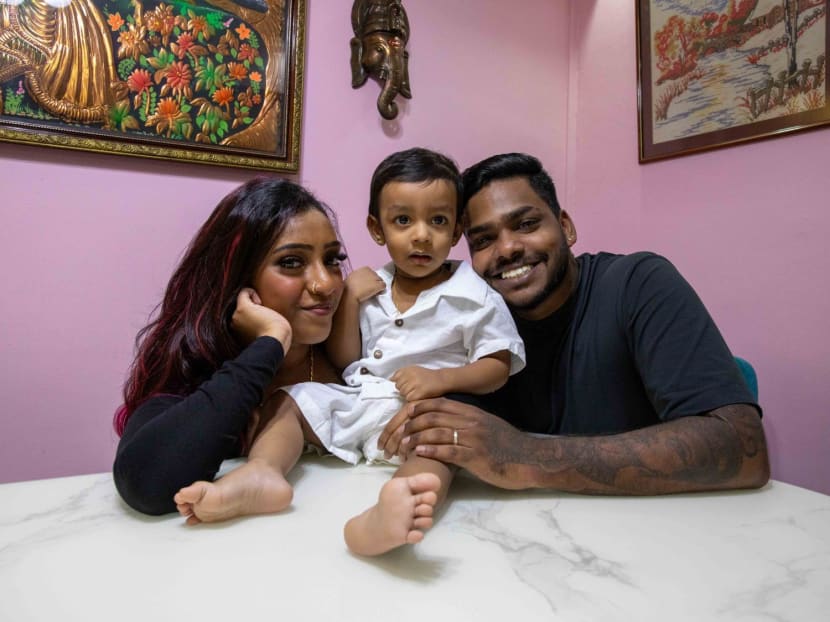
Administrator Madam Nur, 41, and her husband moved back in with her husband's father after his mother died. Although it was hard for them to part with their marital home, they saw it was more important to prioritise spending time with and care for their ageing parent.
Similarly, interior stylist Ms Tey, 39, lives with her husband and her widowed mother to ensure her mother’s comfort and well-being in her later years. The dual-key condominium unit they bought allows them some degree of independence while still living together as an extended family.
For some couples, staying with parents allows them to generate passive income.
Marketing manager Jacelyn Phang, 34, and her husband rent out their condominium unit for extra income while living with her parents.
THE BOTTOM LINE
Despite the Singaporean context of shrinking families, an ageing population and rising property prices, moving out and owning a property is still seen as both a step towards independence and a valuable investment, with some considering homeownership a citizenship right.
So much so that there is arguably a perception among some that if a married couple does not buy their own home, they are "wasting" an opportunity to tap government housing grants, said Savills' Mr Cheong.
"It's not just a case of the grants driving up demand," he said, "Because a first-time HDB purchase is now seen as a sure-win handout, every Tom, Dick and Harry wants in."
Couples applying for BTO flats are eligible for grants such as the Enhanced CPF Housing Grant and Step-up CPF Housing Grant, while those buying resale flats have other grant options, such as the Proximity Housing Grant (PHG), among others.
Whether or not homebuyers are applying for flats partly to benefit from government grants, it cannot be denied that the desire for privacy is a big factor driving demand for housing, too.
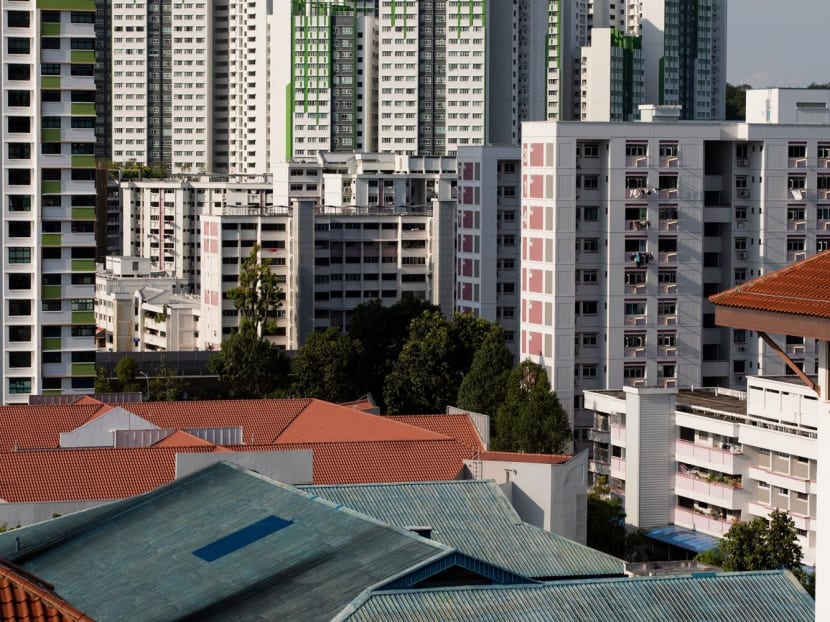
Sociologist Professor Paulin Straughan said this is especially true in a densely populated city-state like Singapore, where space is limited, making personal privacy scarce.
While grants and privacy are driving factors for moving out, living with family can present challenges, such as intergenerational tensions.
Dr Tan Ern Ser, a sociologist at the National University of Singapore, said: “Living under one roof is a double-edged sword. It may reinforce or strengthen intergenerational relationships, or it may generate conflict between generations.”
Hence, living near each other may be better for intergenerational relations than living under one roof, he added.
Prof Straughan of Singapore Management University pointed out that the housing market has also adapted over time, introducing innovations like jumbo flats in the 1990s and dual-key units in 2009.
The dual-key concept meets two important social needs — privacy and intergenerational living. As more young adults remain single into their 30s and 40s, dual-key units offer a practical solution that balances privacy with proximity to family, she said.
Prof Straughan stressed that, ultimately, diverse housing options are crucial to accommodate different family dynamics, as not all families thrive in shared living arrangements.
“We should not take for granted that everyone has a harmonious relationship with their family," she said. "If intergenerational conflict is unresolved, there may be issues like elder abuse as parents age and become more dependent.”










